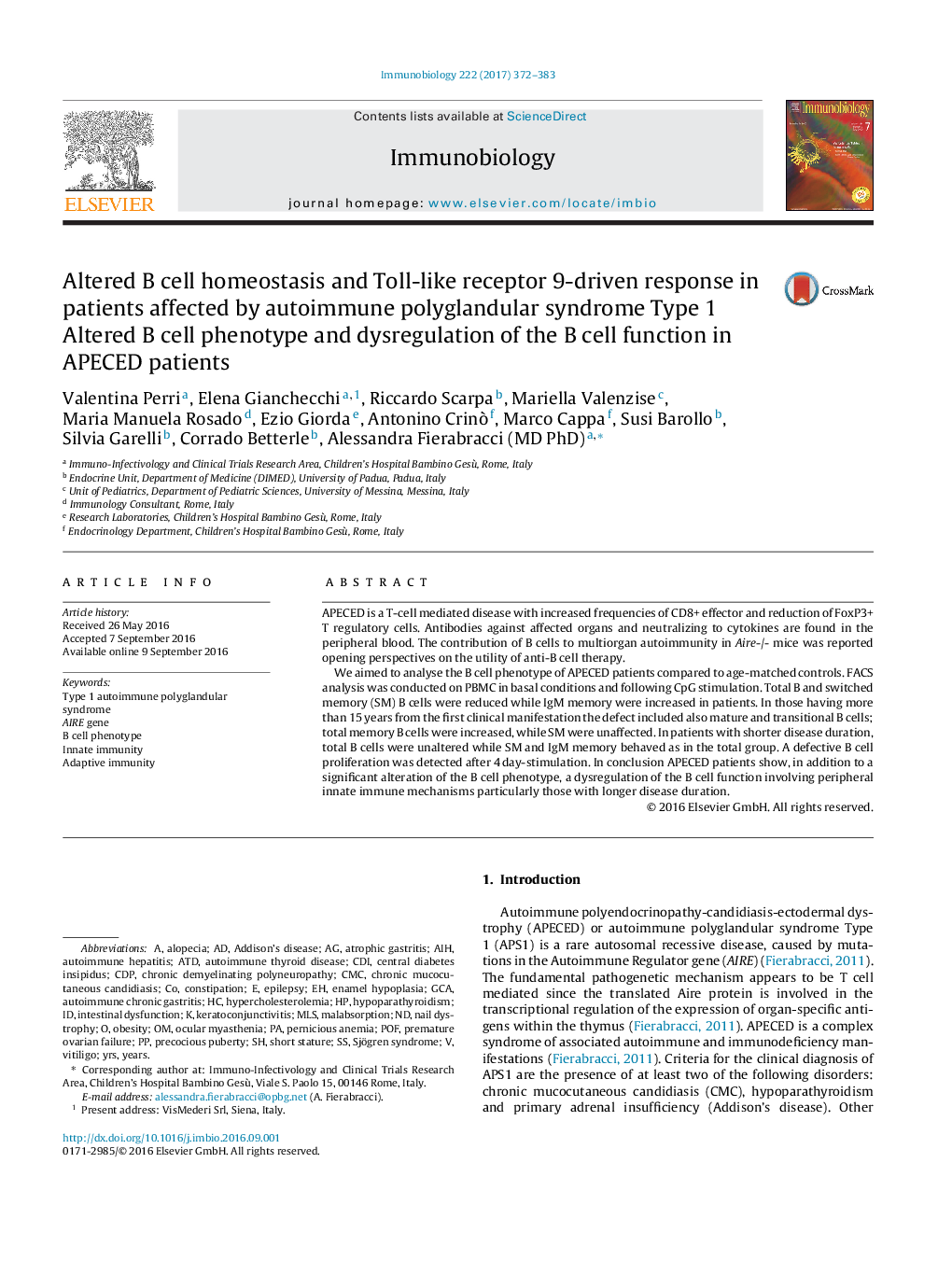| Article ID | Journal | Published Year | Pages | File Type |
|---|---|---|---|---|
| 5532678 | Immunobiology | 2017 | 12 Pages |
APECED is a T-cell mediated disease with increased frequencies of CD8+ effector and reduction of FoxP3+ T regulatory cells. Antibodies against affected organs and neutralizing to cytokines are found in the peripheral blood. The contribution of B cells to multiorgan autoimmunity in Aire-/- mice was reported opening perspectives on the utility of anti-B cell therapy.We aimed to analyse the B cell phenotype of APECED patients compared to age-matched controls. FACS analysis was conducted on PBMC in basal conditions and following CpG stimulation. Total B and switched memory (SM) B cells were reduced while IgM memory were increased in patients. In those having more than 15 years from the first clinical manifestation the defect included also mature and transitional B cells; total memory B cells were increased, while SM were unaffected. In patients with shorter disease duration, total B cells were unaltered while SM and IgM memory behaved as in the total group. A defective B cell proliferation was detected after 4Â day-stimulation. In conclusion APECED patients show, in addition to a significant alteration of the B cell phenotype, a dysregulation of the B cell function involving peripheral innate immune mechanisms particularly those with longer disease duration.
